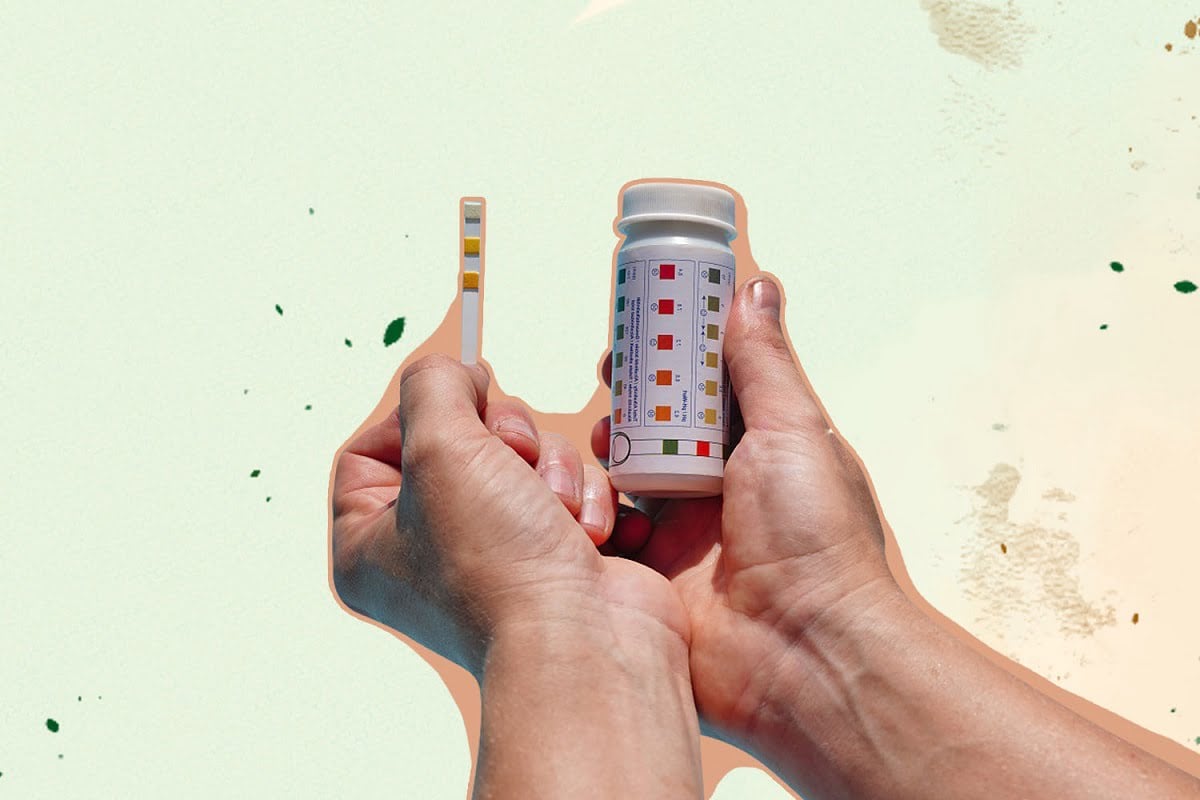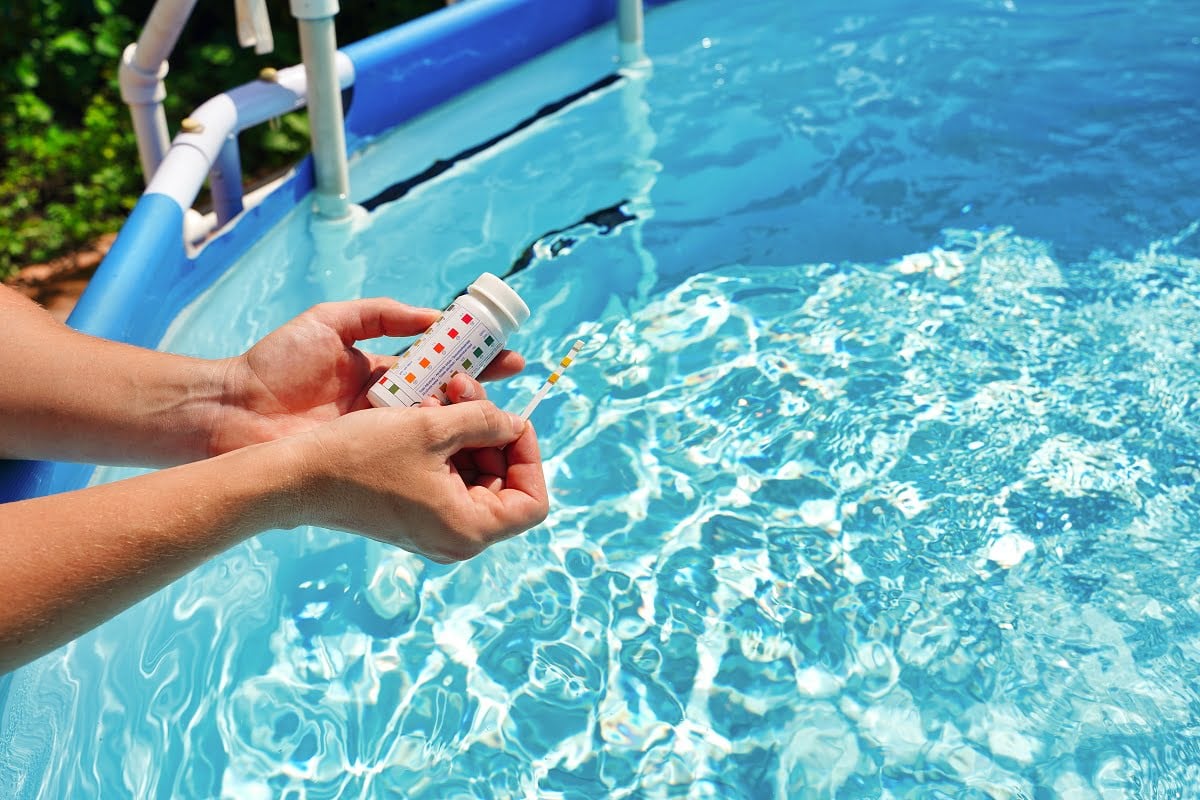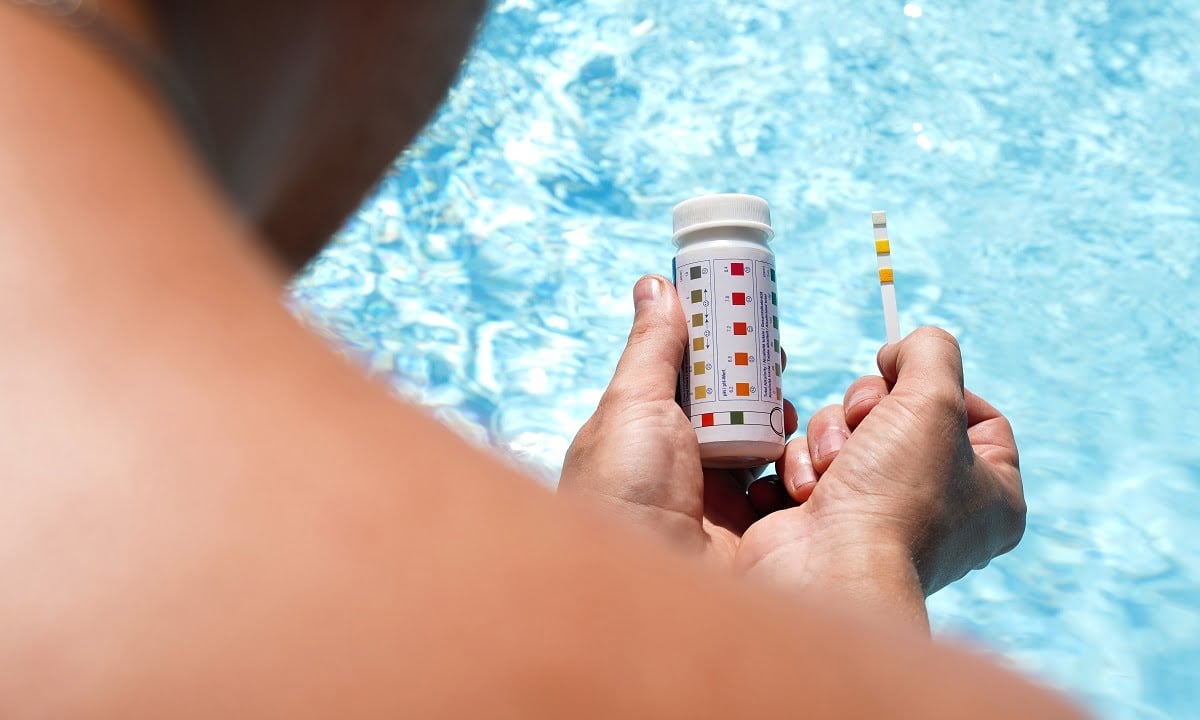Pool testing strips are no doubt useful. But keep in mind that even the best strips or best pool test kits are only accurate to an extent. External factors like the weather, the water temperature, and human errors can affect its accuracy to a certain degree.

To ensure that your pool water safe to swim in, you must check the water quality from time to time. And pool test kits are an affordable option to get the work done. But how should you use them? What are their advantages and disadvantages?
As we unpack the answers to these questions, you will get a better understanding of how accurate pool strips really are. So, let’s dive in!
Are Pool Testing Strips Any Good?

The internet is filled with questions from pool owners like "how to use pool test kits?" and "are these kits any good?" Well, to answer the question- it's a yes and no. They are no doubt an affordable method to measure your pool's pH and chlorine levels. But when it comes to accuracy, it raises quite a few eyebrows.
How accurate the strips can be is largely dependent on how you make use of them. In case you are able to follow the user instructions to the T, there's a high chance that you will get the right readings. However, if you fail to follow the instructions when using the pool test strips, the results might be wrong.
For instance, in case a user dips swimming pool test strips in water only for a very short span of time, the strips won't be able to accurately test the water sample. In that case, a test strip might reveal a wrong reading of the water chemistry. Other than that, a pool test strip might be adversely affected by the temperature of the water in the pool.
If the water temperature is not between 77 and 82 degrees Fahrenheit, the pool water test might turn out inaccurate. Only when you follow the instructions carefully and make sure that the conditions are right, pool water test strips will deliver accurate results.
Chances For Human Error
Just like any other test, you will have to take human error into account when using liquid test kits or test strips. When using a test strip, you will have to read the results in tangent with the color chart that comes with the kit.
Some people may be color blind, which increases the chance of them reading the results wrong. In case you are in the same boat, consider getting a digital reader to interpret the results correctly.
How To Use Pool Testing Strips?
Step 1
To check the chemical levels of the pool with a pool testing strip, you will first have to collect water samples only after you’ve switched on the pool pump for an hour.
And while collecting water, make sure that you dip your hands deep into the water. Do not collect samples from the surface. Water near floating dispensers has a number of foreign particles and might skew your test results.
Step 2
Once you have collected the water sample, dip the strip in the water and remove it quickly. Make sure that you keep the strip from soaking in water for too long. Also, while you are at it, try to keep your fingers from touching the water to get an accurate reading.
Step 3
To check a pool’s chlorine levels or pool’s total alkalinity, you will have to take the strip out of the sample and hold it in the air for about 15 seconds. Take special care to not shake the strip.
Once the strip changes color, hold it against the color wheel sent with the packaging and compare it with the chart. This is when you have to match the readings to the color chart to understand your pool’s chemical levels. It won’t give you an exact reading of the total dissolved solids or chemicals but will give you a general idea of the state of the water.
Step 4
Matching the strip color to that of the chart will help you understand if there is a pool imbalance. In case you see that the levels should be different from what they are, that would mean your pool water requires balancing.
The next step then should be to take the necessary measures to bring the pool’s chemistry to the right range.
Benefits Of Using Pool Test Strips
In this section, we are going to discuss how pool test strip results can be more accurate than the ones produced by a liquid test kit. Listed below are some of the pros of using pool test strips to read water chemistry:
1. Inexpensive
Unless you want to drive a hole in your pocket trying to test pool water samples, we suggest that you try the test strips. They are quite affordable when compared to digital test kits.
2. Easy Use
Using a pool test strip is no rocket science. To check the pH and total alkalinity of the pool water, all you have to do is to dip the strip in water and then compare the color with the included chart. You can get this done very fast, and these pool test strips turn in near-accurate results, provided you follow the steps mentioned above.
3. Provide General Understanding Of Water Quality
When you are trying to test pool chemistry on a regular basis, there's nothing better than a test strip. It will help you measure the total chlorine level in the pool water so that you can maintain necessary caution.
Disadvantages Of Using Pool Test Strips
It's true that pool test strips are a must for pool maintenance. But they do come with their own share of problems. Let's take a look:
1. Results Get Affected By Environmental Conditions
As we have mentioned before, environmental conditions can very well tweak the readings on a pool testing strip. Heat, sunlight, and humidity can affect the results adversely.
Apart from that, pool strips might get affected by the water temperature too. If the water is too hot or cold and beyond the acceptable range, the results might turn out to be inaccurate.
2. Are Pool Test Strips Accurate? - No Completely
If you are looking for highly accurate reports, like measuring the level of cyanuric acid in the water, pool test strips might not be the best bet. For more accurate readings at home, it is best you opt for a digital test kit instead.
The results from pool test strips may vary depending on how you read the result colors and how the temperature is outside. Therefore, the results cannot be completely relied on.
3. Less Precise Than Laboratory Tests
While pool strips give you some idea about the presence of free chlorine and the pool’s pH levels, they cannot tell you about their exact level. In case you want to figure out the exact levels, we suggest that you send the pool water sample to the laboratory for testing.
How To Ensure That Pool Strips Give More Accurate Results?
The most important thing that you will have to do to enhance the testing accuracy is to ensure you are using the right pool strip for the kind of pool you have. Pool strips are not universal, and some are meant for chlorine pools, while others are designed for bromine and saltwater pools.
After getting your hands on the right strip, you will need to carefully follow the instructions printed on the package. Following the instructions mostly involve:
- Keeping the water temperature right
- Proper wait time
- Diligently matching the strip to the color chart
What To Do If Pool Strips Are Not Showing Accurate Results?
If you have followed the instructions closely and done the needful only to see that the results are still dicey, there are a few things you can do:
1. Proper Storage
Unless you store the pool strips in a suitable condition, there’s a high chance that they will show incorrect results. Store the strips in a place where they do not get exposed to sunlight or get wet.
2. Choosing The Right Time
In order to get accurate results, it is important that you choose the right time for testing. It’s always a good idea to conduct the test an hour later after the pool has been used. This is when the chlorine level is at its highest.
Tip
The chemical composition of the water might be different in different areas of the pool, try taking water samples from different areas of the pool to get a better understanding of the water conditions.
In case you have tried everything we have mentioned, and the reports are still inaccurate, invest in a digital tester. No doubt, these tests are more expensive than standard pool test strips. But rest assured that the readings will be more accurate.

Are Pool Testing Strips Accurate Final Words
A pool testing strip can be a great accomplice in your “test your pool” mission. However, if you are wondering “how to test chlorine in pool without kit?” Let us tell you that there are many DIY techniques that can be tried.
These tests might not be as accurate as the strips or the liquid test kits, but they will give you some idea about your pool’s water composition. If you fail to get accurate results, you can always take the water sample to the local pool store. In case the results show chemical compositions well beyond their usual limit, this is a great way out.
And if nothing else works, consider investing in a pro digital tester. With balanced pool water, your swimming experience will only get better.
Until next time, enjoy your swimming sessions!
